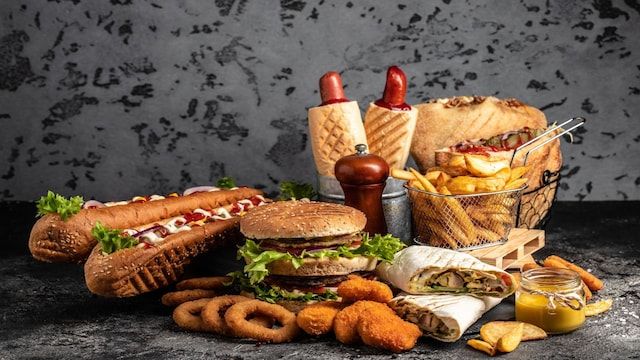Economic Survey 2025 Proposes Radical Measures to Tackle Ultra-Processed Foods in India

New Delhi: The Economic Survey 2025 has proposed a slew of measures to regulate ultra-processed foods (UPFs) in India, including higher tax rates and amended consumer protection laws, aiming to reduce their consumption and promote healthier eating habits among the country's vast youth population.
The survey highlights the risks associated with UPFs, which are high in fat, salt, and sugar. It notes that scientific evidence shows a strong link between the consumption of UPFs and negative health outcomes such as obesity, chronic inflammatory disorders, cardiovascular diseases, and mental disorders.
According to data from the Household Consumption Expenditure Survey 2022-23, almost 10% of rural households and nearly 11% of urban households spend a significant portion of their food budget on beverages, refreshments, and processed foods. The survey suggests that this excessive consumption is driven by the convenience, hyper-palatability, affordability, and vigorous advertising and marketing strategies employed by UPF brands.
To tackle this issue, the survey proposes implementing a "health tax" on UPFs targeting brands and products with high levels of saturated fats, sodium, sugar, or other unhealthy ingredients. High GST rates and amended consumer protection laws are also seen as key deterrents to misleading advertising of unhealthy food products.
The survey emphasizes the need for stricter regulation, including setting standards for permissible levels of salt and sugar and ensuring checks for UPF brands to adhere to regulations. It calls on the Ministry of Health and Family Welfare to urgently define nutrient thresholds for sugars, salt, and saturated fats to regulate advertising and impose stricter marketing restrictions on unhealthy foods, particularly targeting children under 18.
The survey also suggests promoting local and seasonal fruits and vegetables, facilitating positive subsidies for healthy foods, and implementing massive awareness campaigns to promote healthier eating habits among the youth population.
Examples of countries like Denmark, which introduced a tax on saturated food products in 2011, and Mexico, which imposed a surcharge on carbonated drinks and junk food, are cited as success stories that India can draw inspiration from.
In light of this report, the government will need to carefully consider these proposals and take decisive action to address one of the country's most pressing health concerns – the alarming rate of UPF consumption among Indians.
